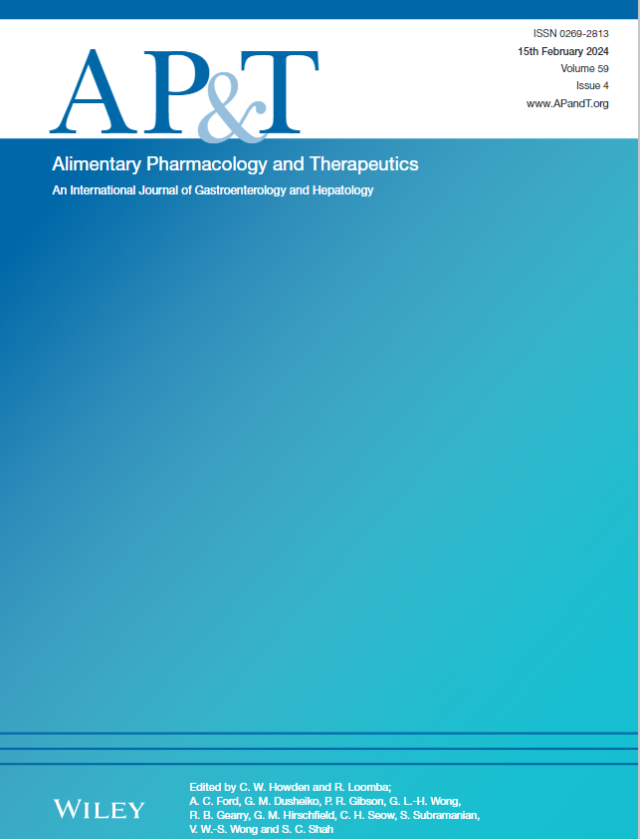Research Communication: Combination Therapy of Upadacitinib With Infliximab, Risankizumab, Ustekinumab or Vedolizumab for Refractory Crohn's Disease: A Descriptive Case Series
IF 6.6
1区 医学
Q1 GASTROENTEROLOGY & HEPATOLOGY
引用次数: 0
Abstract
Combining two advanced therapies may improve outcomes in Crohn's disease (CD) refractory to monotherapy. We conducted a descriptive case series of 27 patients with CD who initiated combination therapy with upadacitinib and infliximab (研究交流:Upadacitinib联合英夫利昔单抗、Risankizumab、Ustekinumab或Vedolizumab治疗难治性克罗恩病:描述性病例系列
联合两种先进疗法可能改善单药难治性克罗恩病(CD)的预后。我们对27例CD患者进行了描述性病例系列研究,这些患者开始使用upadacitinib和英夫利昔单抗(n = 1), risankizumab (n = 17), ustekinumab (n = 3)或vedolizumab (n = 6)联合治疗。12周时,24例达到临床缓解,9例达到无类固醇缓解。在52周时,这些比率分别为15/20和11/20。内镜下反应和肠外表现的改善经常被观察到。13例患者发生不良事件,3例患者停止治疗。upadacitinib与一种生物制剂联合使用有效且安全,值得在前瞻性研究中进一步研究。
本文章由计算机程序翻译,如有差异,请以英文原文为准。
求助全文
约1分钟内获得全文
求助全文
来源期刊
CiteScore
15.60
自引率
7.90%
发文量
527
审稿时长
3-6 weeks
期刊介绍:
Alimentary Pharmacology & Therapeutics is a global pharmacology journal focused on the impact of drugs on the human gastrointestinal and hepato-biliary systems. It covers a diverse range of topics, often with immediate clinical relevance to its readership.

 求助内容:
求助内容: 应助结果提醒方式:
应助结果提醒方式:


